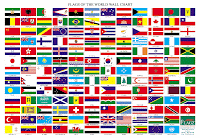 In the July issue of Foreign Affairs, international relations scholar and founder of neorealism, Kenneth Waltz, published a column not only defending nuclear deterrence theory, but also supporting the Iran obtaining a nuclear weapon (part of the column can be found on the website of USA Today). Waltz identifies three possible futures that could be had depending on the actions of Iran’s nuclear enrichment program. I find his analysis selective and the publishing of such opinions as legitimate in both the academic and mainstream press, without acknowledging the disastrous consequences that are possible in the case that his presumptions are false, to be reprehensible. I thus write this response.
In the July issue of Foreign Affairs, international relations scholar and founder of neorealism, Kenneth Waltz, published a column not only defending nuclear deterrence theory, but also supporting the Iran obtaining a nuclear weapon (part of the column can be found on the website of USA Today). Waltz identifies three possible futures that could be had depending on the actions of Iran’s nuclear enrichment program. I find his analysis selective and the publishing of such opinions as legitimate in both the academic and mainstream press, without acknowledging the disastrous consequences that are possible in the case that his presumptions are false, to be reprehensible. I thus write this response.
One of the biggest issues with Waltz’s analysis is his complete dismissal of the incomprehensible dangers of nuclear weapons. He writes, “A palpable sense of crisis still looms,” and then dismisses it by saying, “It should not.”1 In the words of Nuclear Age Peace Foundation president David Krieger, “fear is a healthy mechanism when one is confronted by something fearful.”2 The Hiroshima and Nagasaki bombs killed 200,000 initially and many more in the months and years after. The current warheads are much larger than those two, plus new reports discuss how the nuclear famine that would follow a limited nuclear exchange between Pakistan and India could kill over 1 billion human beings.3 Luckily for us, Mr. Waltz is not worried. He thinks, “A nuclear-armed Iran would probably be the best possible result of the standoff and the one most likely to restore stability to the Middle East.” I beg to differ.









